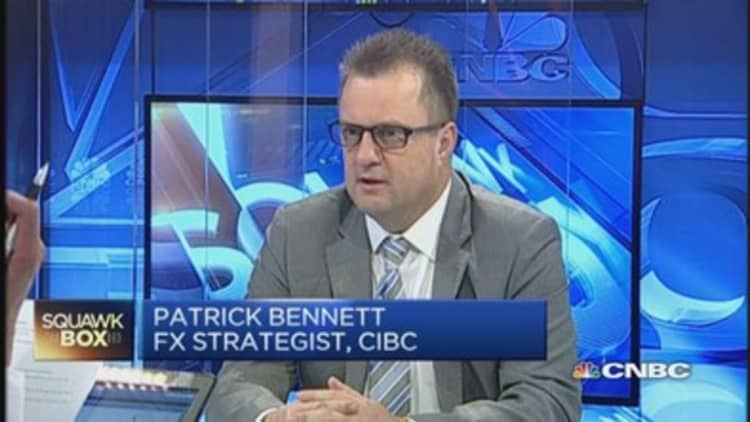The dollar index, which measures the greenback's performance against a basket of currencies traded slightly lower in late-afternoon Friday as the euro extended its gains.
The euro rose nearly 0.5 percent against the dollar to $1.0824, while the dollar index edged down about 0.1 percent to 97.34. The index earlier fell to 97.001, its lowest since April 7.
The dollar also traded lower against the yen at 118.83 after having rebounded from a three-week low against the Japanese currency amid data showing inflation starting to creep into the U.S. economy, a development that should keep the Federal Reserve on track to lift interest rates this year.
The inflation data, however, did not change the market's expectation for the timing of a Fed rate hike, especially after recent soft U.S. economic figures. Analysts are still pricing in just one rate increase this year, sometime late in the fourth quarter.
U.S. consumer prices rose 0.2 percent in March, gaining for a second straight month, propelled by higher costs for gasoline and housing. Closely watched core consumer prices showed a rise of 1.8 percent year-on-year, inching closer to the Fed's 2.0 percent target.
"We had a stronger core CPI, which suggests that inflation is starting to firm as the Fed expected, and that's positive for the dollar," said Vassili Serebriakov, currency strategist at BNP Paribas.

"But this doesn't change the expected timing in interest rates. We still don't think the Fed will raise rates in June."
Read MoreThis is why the Fed might not raise rates in 2015
The greenback had rallied by as much as 30 percent since May last year, hitting 12-year highs in March and getting close to them again last week as investors bet the Fed would start hiking rates as early as June. But as economic data has disappointed for much of this year, those bets have been pushed back.
The latest numbers showed U.S. housing starts rose less than expected in March and factory activity in the mid-Atlantic region grew modestly this month. That suggests the economy may struggle to rebound from a weak first quarter.

